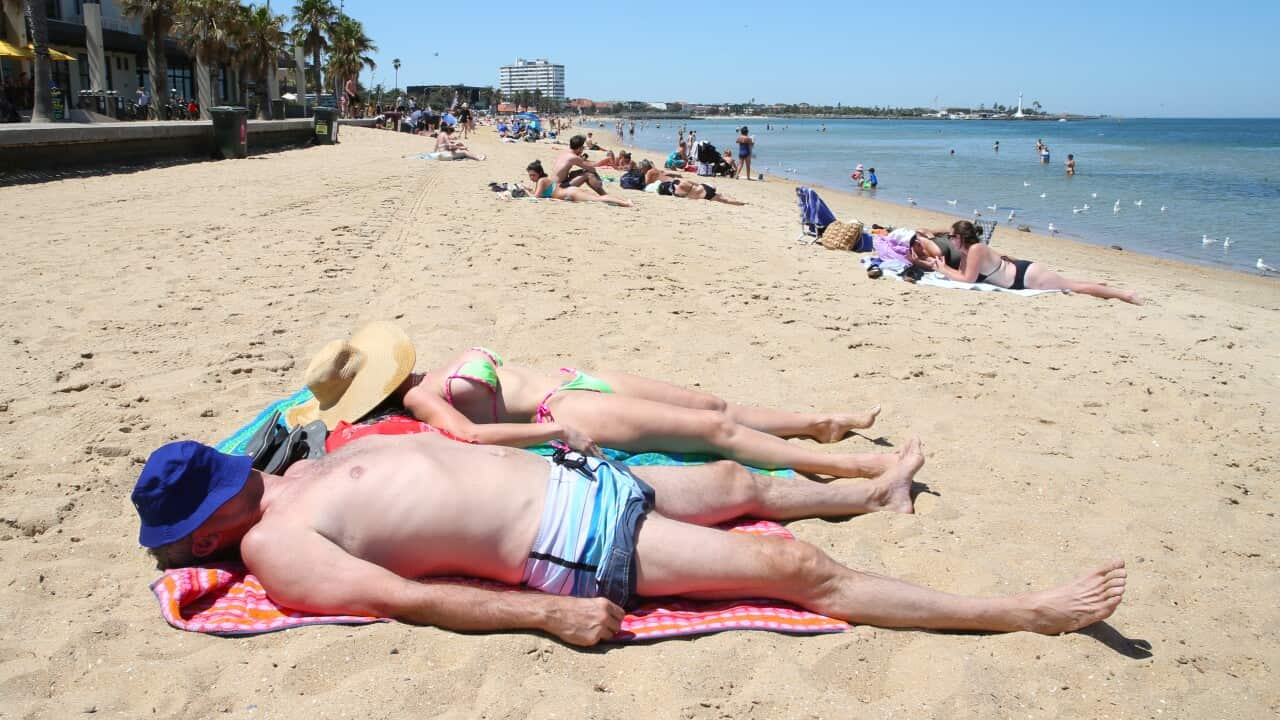Australia is colloquially called the sunburnt country for a reason — there are reports of dangerous levels of UV in parts of the country on some days.
But this doesn't mean Australians are immune to vitamin D deficiency.
One in five adults in Australia suffer from a lack of the key vitamin, which is important for bone development and muscle and nerve function.
During winter, this rate increases to one in four Australians aged 18 and over, according to Australian Bureau of Statistics (ABS) data from 2022 to 2024.
The data, from the National Health Measures Survey, found vitamin D deficiency was highest for the 18–29 year age groups, while men were more likely to be deficient than women.
Why do so many Australians not get enough vitamin D?
The main source of the vitamin for Australians is sunlight.
"The ultraviolet part of sunlight is energetic enough to convert a chemical in skin to vitamin D," Rebecca Mason, a bone and skin researcher and a professor at the University of Sydney, told SBS News.
"That vitamin D is absorbed, [and] it's converted to other related chemicals."
One of the reasons is the use of sunscreen among people who face the risk of skin cancer.
"They really have to protect their skin, and that takes from the damaging effects of sunlight, and that takes priority," Mason explains.
But other factors can include a lack of exposure to sun for those with specific cultural clothing, being indoors all day for work, or having different skin tones.
What are the consequences of vitamin D deficiency?
Some experts believe that having less than the standard amount of vitamin D may come with serious medical consequences.
Without vitamin D, the body may face some issues absorbing calcium.
"You need the calcium and the phosphate that you eat to make healthy bones and healthy muscles," Mason said.
LISTEN TO

Massive research project finds new ways to treat Osteoarthritis
SBS News
10:14
"If you don't have enough vitamin D, then your bones tend to be soft, this is with severe deficiency, and your muscles tend to be weak, particularly the shoulders and around the hips."
There may also be a link between vitamin D levels and other medical conditions.
A 2024 study from Monash University found vitamin D deficiency was a risk factor for developing multiple sclerosis (MS) and several other autoimmune diseases.
Can you test your vitamin D levels?
Although mild vitamin D deficiency may not have any symptoms, more severe deficiencies usually come with tangible signs.
"You may fracture your bones more readily. You may find it difficult to get up from a sitting position," Mason explains.
"If you've got any bone problems like osteoporosis, you should check the vitamin D deficiency."
If you're worried about your vitamin D levels, there are rapid tests that could help you ascertain whether your body is in deficit.
The tests are conducted using a small drop of blood from a finger prick, providing results about your vitamin D level within 15 minutes, but some experts believe such tests may not be sufficiently accurate.
"The results of the rapid tests vary from test to test, but there's a wide variation," Mason said.
"Your vitamin D [level] should be reasonably stable from day to day."
She says there could be "some use" to these kinds of tests.
"If you get a result that's not quite right and you're worried, then you should go and see your GP or health professional and get a proper blood test done."
How to receive vitamin D in winter?
Sunlight is the primary source for vitamin D, but even in cloudy winter days, there are still some solutions to increase its level.
One way is exercising under the sun.
"You can get a bit of sunshine if you exercise at the same time ... you've got to be exercising [and] roll your sleeves up," Mason suggests.
"A little bit of exercise, even indoors, can help you maintain your vitamin D levels."
According to Mason, other options include taking specific vitamin D supplements during the winter or consuming certain foods, such as dairy products and fish with skin, some dairy products and egg yolks.
Can you have too much vitamin D?
On the other hand, too much vitamin D might not be healthy either.
"That certainly can be a problem. It's hard to get too much vitamin D unless you take far too many supplements," Mason warns.
"In Australia, they don't generally have big dose supplements ... but if you get too much vitamin D from supplements, it can cause kidney stones and sometimes high calcium levels in the blood, which can be quite dangerous, even fatal."



